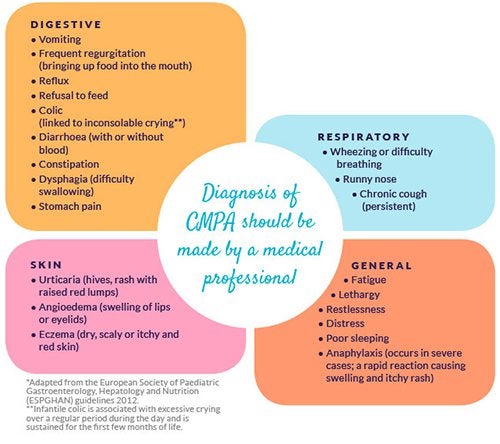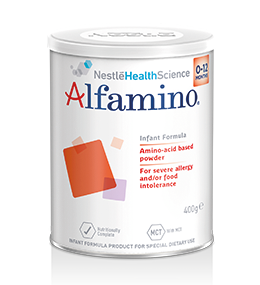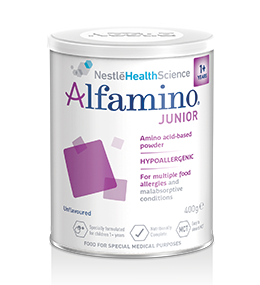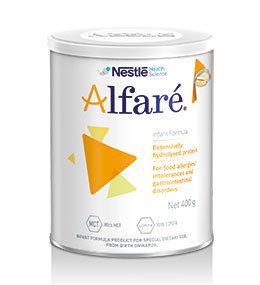The signs and symptoms linked with CMPA, ranging from colic and reflux to constipation, diarrhoea and crying, make diagnosis a real challenge.
Every case of CMPA is also unique, so it helps to be aware of all the possible symptoms to look out for. There are three main categories of symptoms*, including skin, digestive and respiratory and also a fourth category of more general signs*.
These signs or symptoms can appear immediately, i.e., within minutes up to two hours of ingesting cow’s milk protein, or after several hours or days, depending on the nature of the reaction.

HELP PARENTS PREPARE FOR THEIR VISIT
In order to raise parents' awareness and prepare them for their visits, Nestle Health Science has developed a cow's milk protein allergy symptoms diary.
ACCURATE AND EARLY: DIAGNOSTIC SUPPORT FOR COW'S MILK PROTEIN ALLERGY
Eczema? Reflux? Constipation? Diarrhoea? Crying?
Could it be cow’s milk protein allergy?
Read more ...
FOR HCP'S: COULD IT BE COW'S MILK PROTEIN ALLERGY?
Do you suspect that your patient has a food allergy?
Cow's Milk Protein Allergy is one of the most common food allergies in the first year of life.
Read more ...
Nutritional products for food allergy
BREASTFEEDING IS BEST FOR BABIES.
Nestlé Health Science has a range of paediatric products that can assist in maximising nutritional intake across a wide range of conditions including food allergies.
ALFARÉ® and ALFAMINO® are Infant Formula Products for Special Dietary Use. Products are not suitable for general use. ALFAMINO® Junior is a food for special medical purposes specifically formulated for children with severe allergy and/or food intolerances. Products must be used under medical supervision.
Breast milk is best for baby and provides ideal nutrition. Good maternal nutrition is important for preparation and maintenance of breastfeeding. Introducing partial bottle feeding could negatively affect breastfeeding and reversing a decision not to breastfeed is difficult. Professional advice should be followed on infant feeding. Infant formula should be prepared and used exactly as directed or it could pose a health hazard. The preparation requirements and cost of providing infant formula until 12 months of age should be considered before making a decision to formula feed.
Mothers should be encouraged to continue breastfeeding even when their infants have cow’s milk protein allergy. If a decision to use an infant formula for special dietary use is taken, it must be used under medical supervision.




